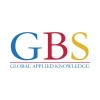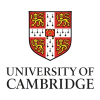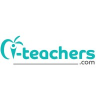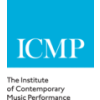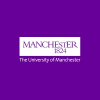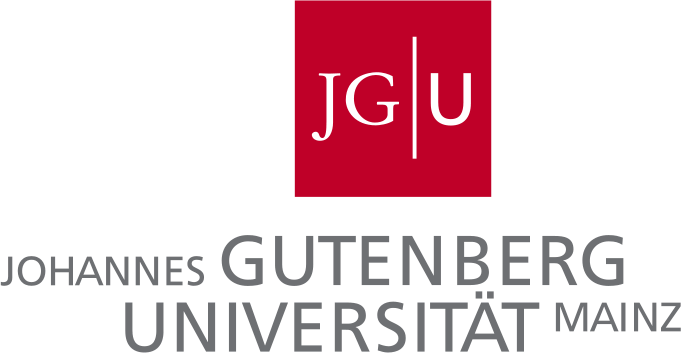Snabbfakta
-
- Durham
Ansök senast: 2024-11-30
Assistant Professor in TESOL and Digital Language Learning Technology (MLAC_01)
Working at Durham University
A globally outstanding centre of teaching and research excellence, a warm and friendly place to work, a unique and historic setting - Durham is a university like no other.
As one of the UK's leading universities, Durham is an incredible place to define your career. The University is located within a beautiful historic city, home to a UNESCO World Heritage Site, and surrounded by stunning countryside. Our talented scholars and researchers from around the world are tackling global issues and making a difference to people's lives.
We believe that inspiring our people to do outstanding things at Durham enables Durham people to do outstanding things in the world. Being a part of Durham is about more than just the success of the University, it's also about contributing to the success of the city, county and community.
Our University Strategy is built on three pillars of research, education and wider student experience, but also on our keen sense of community and of inspiring others to achieve their potential.
Our Purpose and Values
We want our university to be a place where people can be free to be themselves, no matter what their identity or background. Together, we celebrate difference, value one another and are each responsible for creating an inclusive community that is respectful and fair for all.
Find out more about the benefits of working at the University and what it is like to live and work in the Durham area on our Why Join Us? - Information Page
Discover more about our total rewards and benefits package here.
The School of Modern Languages and Cultures
The successful candidate will join the School of Modern Languages and Cultures (MLAC), Durham, which is one of the largest and most successful such Schools in the UK. The School brings together research in Arabic, Chinese, French, German, Hispanic Studies, Italian, Japanese and Russian Studies. Our reach spans Europe, the Arab world, Russophone Eurasia, Hispanic America, and East Asia, and their mutual socio-cultural, intellectual and linguistic relations.
MLAC federates expertise to generate innovative practices in teaching and research that cross historical, geographical and methodological boundaries. Our expertise ranges from the medieval and early period studies through to the contemporary era, with particular strengths in visual arts and culture, the relationship between the sciences and the humanities, textual scholarship, gender and sexuality studies, critical and cultural theory, travel literature, creative writing, and translation. Indeed, translation - understood in its broad sense of transmission, interpretation and sharing of languages, ideas and histories - underpins the School's collective practices.
SHAPE * MERGEFORMAT The depth and diversity of our expertise is reflected in a range of interdisciplinary degree programmes at undergraduate and postgraduate levels. We offer undergraduate degrees in Modern Languages and Cultures, Chinese and Japanese Studies, and Visual Art and Film. Our taught postgraduate degrees offer advanced training in Translation Studies, Visual Culture and Languages, Literatures and Cultures. Meanwhile, the Centre for Foreign Language Study (CFLS) delivers an Institution-Wide Language Programme to students across the University via credit-bearing and non-credit bearing modules, giving as many of our students as possible the opportunity to learn languages in the way and at the level best suited to them. More information on the School can be found on our webpages at: our strengths in language teaching pedagogy, we are delighted that the University's well-established MA in TESOL and Applied Linguistics will be joining the School from academic year 2025/26. Currently based in the Durham Centre for Academic Development, the MA in TESOL and Applied Linguistics has a long-standing reputation for attracting and training teachers of English from around the world. We anticipate that its move to MLAC will reinforce synergies and exchanges of good practice in the domain of language learning and language pedagogy.
The School seeks to support the development of the programme by appointing a talented individual to the role of Assistant Professor in TESOL and Digital Language Learning Technology. We welcome applications from those with teaching interests in the broad field of English-language pedagogy and are particularly keen to hear from applicants with expertise in the application and integration of digital technologies into language pedagogy.
The post offers an exciting opportunity to make a major contribution to the development of internationally excellent pedagogy and teaching while allowing unrivalled opportunities to progress and embed your career in an exciting and progressive institution. The appointment will be on the Education track and be from 1 December 2024 or as soon as possible thereafter.
Assistant Professors (Education) at Durham
Assistant Professors on the Education track contribute to teaching, innovation, and citizenship, with opportunities to enhance their own development, support their department and discipline, and contribute to the wider student experience.
Teaching quality and innovation is critical to ensure a first-class learning environment and curricula for all our students. You will be supported to develop your teaching expertise, to engage in teaching innovation, to enrich our student experience, and will be assigned a designated mentor.
You will be expected to engage in scholarship related to pedagogy, noting that any other independent research (beyond pedagogy) is not part of this post. The appointment will be on the University's 'Education Track' career path, which provides clearly defined opportunities for progression against defined criteria.
We are confident that our recruitment process allows us to attract and select the best talent to Durham. We therefore offer a reduced probation period of 1 year for our Assistant Professors (Education) and thereafter, subject to satisfactory performance, your position will be confirmed as permanent.
Applicants must demonstrate teaching excellence in the field of TESOL and digital language learning technology,, with the ability to teach our students to an exceptional standard and to fully engage in the services, citizenship and values of the University.
The University aims to provides a working and teaching environment which is inclusive and welcoming and where everyone is treated fairly with dignity and respect. Candidates will be expected to demonstrate these key principles as part of the assessment process.
Key responsibilities:
- To deliver lectures, seminars and tutorials at undergraduate and taught postgraduate levels, with the opportunity to teach more widely within the Department, as well as engaging in related activity such as assessment
- Engage in pedagogic activity at Departmental level that supports a high quality, academic professional community of practice within the Department and beyond.
- Maintain an active membership and engagement with a professional body (e.g. HEA or discipline-specific bodies).
- Contribute to ongoing curriculum development, demonstrating innovation in educational practice to enhance the quality of the educational environment in the Department and wider University in support of our continuing emphasis on international excellence as well as equality, diversity and inclusion.
- To contribute to the administrative work, citizenship and values of the Department.
- Engage in and enhance the values of the Department with regard to its commitment to its vibrant and international postgraduate culture.
- Carry out such other duties as specified by the Head of Department.
Durham University is committed to equality, diversity and inclusion
Equality, diversity, and inclusion (EDI) are a key component of the University's Strategy and a central part of everything we do. We also live by our Purpose and Values and our Staff Code of Conduct. At Durham we actively work towards providing an environment where our staff and students can study, work and live in a community which is supportive and inclusive. It's important to us that all colleagues undertake activities that are aligned to both our values and commitment to EDI.
We welcome and encourage applications from those who are currently under-represented in our work force, including people with disabilities and from racially minoritised ethnic groups.
If you have taken a career break or periods of leave that may have impacted on your teaching achievements or pedagogical outputs, such as maternity, adoption or parental leave, you may wish to disclose this in your application The selection committee will recognise that this may have reduced the quantity of your research accordingly.
The University has been awarded the Disability Confident Employer status. If you are a candidate with a disability, we are committed to ensuring fair treatment throughout the recruitment process. We will make adjustments to support the interview process wherever it is reasonable to do so and, where successful, reasonable adjustments will be made to support people within their role.
Person Specification
Candidates must outline their experience, skills and achievements to date which demonstrate that they meet or that they have the potential to achieve the essential criteria. You'll help us deliver outstanding teaching throughout the year and develop pedagogical innovations alongside a team of truly world class colleagues. Please note the role will include pedagogical duties that may extend into the summer period.
Education
Candidates must demonstrate the development and delivery of high-quality teaching that contributes to providing a supportive and enabling learning environment and curricula which encourage students to achieve their potential.
Essential Education Criteria
- Qualifications - a good first degree and a PhD in TESOL/Applied Linguistics or a related subject, or equivalent demonstrable practitioner experience and skills, which may include appropriate certification and/or membership of a relevant professional body.
- Quality - evidence of the development and delivery of effective and engaging teaching, which may include large- and small-group learning, use of diverse assessment methods, and use of technology and/or other techniques to enhance learning (Candidates may choose to provide student evaluation scores and/or peer reviews of teaching).
- Experience of teaching and assessment at an appropriate level in either ESOL/EFL/ESL/ESP/EAP or in university education, with positive student feedback and evaluations gained.
- Experience of applying and integrating technology into English language teaching, learning and assessment, including experience of delivering digital education and online learning in a suitable context.
Scholarship and Educational Impact
Candidates will have the ability to engage in scholarly activity which contributes to pedagogical practice and understanding within the department, faculty, and University.
Essential Scholarship and Educational Criteria
- Candidates will be expected to demonstrate engagement in scholarly activity in ways that positively impact on pedagogical practice and education within the department (and beyond), or activities that support the development of a professional practice and/or discipline.
Candidates must be able to evidence work undertaken in preparation for teaching and for keeping abreast of developments in the subject area.
The format will depend on the discipline and the candidate's career to date, but evidence of scholarship and educational impact may include some of the following (or similar) activities:
- active membership and engagement with a professional body;
- internal awards (e.g. Collaborative Innovation Grant) to support educational innovation and scholarly activity;
- demonstrable innovation in educational practice, such as contribution to the enhancement of student learning via pedagogic innovation and change (e.g. online learning, research-led teaching, employer engagement, curriculum and course development, student guidance);
- publication in a scholarly journal or relevant professional publication;
- attending and presenting internal and/or external seminars or at a regional conference; and/or,
- materials/curriculum development for wider use in a department or beyond.
Service, Citizenship and Values
Active engagement in administrative and citizenship requirements and to fostering a respectful environment, including a demonstrable commitment to equality, diversity, and inclusion.
Essential Services, Citizenship and Values criteria
1. Citizenship contribution - evidence of participation in the citizenship/administrative activities of an academic Department, Faculty or University. (Candidates may choose to evidence departmental or University roles, mentoring activity, pastoral and academic support of students, engagement with widening participation, involvement in equality and diversity initiatives and membership or engagement with external bodies).
2. Communication - candidates must have excellent oral and written communication skills with the ability to engage with a range of students and colleagues across a variety of forums.
3. Administration - evidence of engagement with administration related teaching in an academic department and/or discipline or other relevant administration experience.
Desirable Criteria
The desirable criteria for this post (for which candidates should provide evidence of some if not all criteria) are:
1. Qualification -- candidates to hold or have the ability to attain the rank of Fellow of the Higher Education Academy ( which is the national body that champions teaching excellence (or Equivalent).
2. Leadership - candidates may choose to detail any prior relevant leadership roles which they have undertaken. Potential examples may include leading an internal working group; module development and convening; effective administration relating to educational delivery or professional practice; or promoting and leading change processes in a department e.g. in curriculum development.
Contact Information
Contact information for technical difficulties when submitting your application
If you encounter technical difficulties when using the online application form, we prefer you to send enquiries by email. Please send your name along with a brief description of the problem you're experiencing to
Alternatively, you may call 0191 334 6801 from the UK, or +44 191 334 6801 from outside the UK. This number operates during the hours of 09.00 and 17.00 Monday to Friday, UK time. We will normally respond within one working day (Monday to Friday, excluding UK public holidays).
University contact for general queries about the recruitment process
How to Apply
We prefer to receive applications online.
Please note that in submitting your application Durham University will be processing your data. We would ask you to consider the relevant University Privacy Statement Job Applicants/Potential Job Applicants - Durham University which provides information on the collation, storing and use of data.
What to Submit
- A covering letter which details your experience, strengths and potential in the requirements set out above, including your contribution to pedagogical scholarship and the educational impact of your work
- A CV
- A personal scholarship plan of no more than 500 words covering the next three years from academic year 2024/25, outlining your priorities for pedagogic innovation in your area of teaching practice and how you will take them forward
- Two examples of your most significant publications, reports, pieces of work, or other evidence of pedagogic activity demonstrating your scholarship and educational impact since 2019 (work prior to 2019 may be submitted where candidates have had career breaks)
- An EDI & values statement of no more than 500 words which demonstrates your commitment to EDI and our values. (I.e. involvement in equality, diversity, and inclusion activities such as mentoring, volunteering, or attending conferences.
Where possible we request that you provide accessible web links to your pedagogical outputs, which the hiring Department will use to access your work. The application form contains fields in which to enter each of the web links.
Please note we are unable to access publications behind a paywall.
In the event you are unable to provide accessible links to online hosting of your work, publications should be uploaded as PDFs as part of your application in our recruitment system.
Please ensure that your PDFs are not larger than 5mb. Your work may be read by colleagues from across the Department and evaluated.
All application documents should be uploaded with your name and document type as PDF files.
We will notify you on the status of your application at various points throughout the selection process, via automated emails from our e-recruitment system. Please check your spam/junk folder periodically to ensure you receive all emails.
Referees
You should provide 3 academic referees they should not (if possible) include your PhD supervisor(s). The majority should be from a University other than your own (save for early career applicants applying for their first post).
References will be requested for candidates who have been shortlisted and will be made available to the panel during the interview process.
As part of your application, you will be asked whether you give your consent to your academic references being sought should you be invited to attend an interview. We will only request references where permission has been granted.
Next Steps
All applications will be considered; our usual practice is for colleagues across the Department to read the submitted work of long-listed candidates.
Short-listed candidates will be invited to the University, either virtually or in-person and will have the opportunity to meet key members of the Department.
The assessment for the post will normally include a presentation on an aspect of your approach to pedagogy to staff and students in the School followed by an interview, and we anticipate that the assessments and interviews will take place over two days in October or November 2024.
The role will be based in Durham City
Applicant Guidance
For further guidance on your application please see HERE

